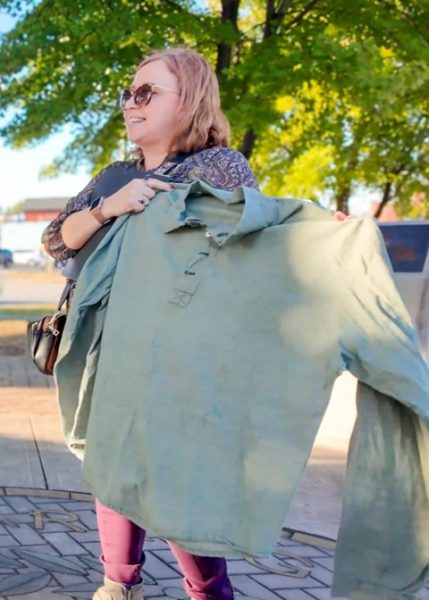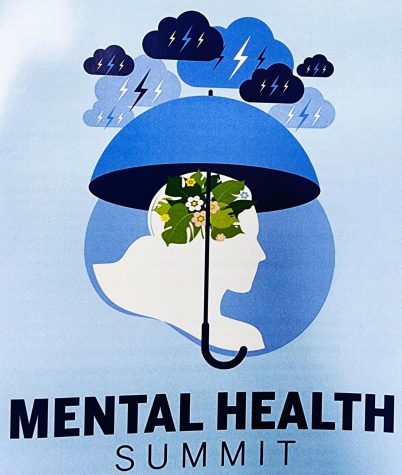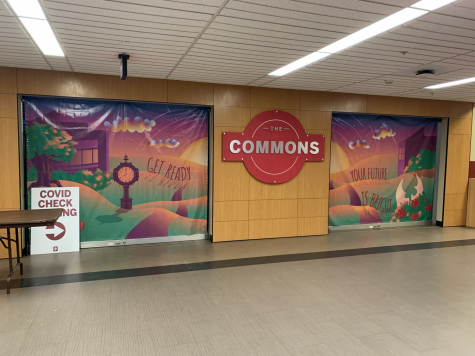Louisville faces the refugee crisis
Despite political tensions, local organizations strive to keep Louisville a welcoming city for incoming refugees.
Illustration of a migrant boy on a boat headed to a new land. Photo by Erik Nelson Rodriguez, Tribune News Service. Used with permission.
As refugees filter in from nations across the world, Louisville citizens are handed the task of providing a welcome environment and resources to families fleeing their home countries.
This is not an easy task, as Kentucky has ranked in the top 20 percent of states bringing in refugees, according to 2013 and 2014 data from the U.S. Office of Refugee Resettlement.
As of 2016, Kentucky ranked sixth nationwide for refugee to citizen ratio, according to the Pew Research Center.
With such a large influx of refugees, local organizations have had to adjust to providing assistance to people from various nationalities.
Becoming a Refugee
Refugees are people that have been forced to abandon their home countries due to racial, sexual, religious, political or gender-related persecution. Two-thirds of refugees across the globe stem from Syria, Afghanistan, South Sudan, Myanmar and Somalia, based on data found by the UN Refugee Agency.
In Kentucky, the top four countries represented are Cuba, the Democratic Republic of the Congo, Somalia and Iraq, as of 2017.
In June of 2018, more than 350 refugee and immigrant families gathered for the Welcoming Interactive and Welcoming Economies Conference in the Hyatt Downtown Louisville.
The conference occurred in the midst of President Donald Trump’s travel ban being reinforced by the U.S. Supreme Court, which increases the likelihood of separation between immigrant families. Since then, it has been more difficult for families to stay together throughout the entire process.
Alix Davidson is the Grants Coordinator for Catholic Charities Immigration and Refugee Services (CCIRS), a refugee resettlement agency in downtown Louisville.
“Some of those [refugees] don’t know when they’re going to see their relatives ever again,” Davidson said. “That’s been really difficult for a lot of our families.”
The adjustment period is an often strenuous, lengthy procedure that can take a toll on families.
The Resettlement Process
Resettlement is a tricky and rare process, offered to less than one percent of refugees worldwide, according to research from HIAS.
CCIRS works to provide the refugees with housing, donations of housewares, furniture and other necessities from the community, and valuable information of their surroundings to help refugees settle into their new home.
“We basically just provide everything that’s needed for refugees when they first arrive here in the country,” Davidson said.
A refugee’s first week in Louisville consists of several orientations and preparing children for school registration. They are also given opportunities to find employment in the local area and attend English language classes to improve their communication skills.
According to Davidson, the majority of refugees receive a steady job within the first two to three months of their move.
Bryan Warren is the Director of the Office of Globalization for the Louisville government. The office works to assist refugees and immigrants with the process of transitioning into the city, increases economic development through global outreach and improves multiculturalism within our society.
“People don’t understand how much [refugees and immigrants] contribute to our society,” Warren said.
Throughout the first three months of a refugee’s stay, they undergo intensive case management from a representative at CCIRS in order to ensure their adjustment is successful. After that, there are minor resources, such as medical and mental health services, available for up to five years, if necessary.
“The biggest [obstacle] is probably language and adapting to the culture,” Davidson said.
When refugees are unable to communicate during major problems they are experiencing, such as trouble with the police or requiring medical attention, this makes their transition more difficult. CCIRS provides translators to help in moments of crisis.
“They’re more resilient than you would imagine,” Davidson said. “They manage to keep going and they try to keep positive.”
When it comes to the numbers, refugee resettlement in Louisville is substantially lower than it has been in recent years. After President Trump’s travel ban, funding has been significantly cut.
“We used to resettle 700 refugees plus another 600 Cubans every year, and last year, we only served around 450 people altogether,” Davidson said.
With so many restrictions set in place, it’s difficult to receive refugees from the countries where the need is most dire.
“We used to see a lot of clients from Syria, more from Afghanistan and some from Iraq,” Davidson said. “None of that is really happening anymore.”
How to Help
With CCIRS, their English language school benefits from one-on-one conversation with native English speakers. They are always looking for people willing to spend time engaging in those conversations with refugees in order to prepare them for their new lives.
They also coordinate a Family Sponsorship Program, which can be a good fit for larger organizations such as churches, where families are provided transportation, basic donations and mentorship.
“Just for them to have another American family or some people in their community who can make them feel welcome and show them around,” Davidson said. “It helps our clients feel extra welcome.”
Volunteering in general is a way to give back and increase a refugee family’s probability for success. Organizations like CCIRS across Louisville are consistently looking for new volunteers to make a difference in the lives of new arrivals.
Kentucky Refugee Ministries is another organization with opportunities available to help. They have volunteer openings in a variety of sectors, including administration, elder program tutors, childcare, transportation and citizenship tutors.
There are also events throughout the year that require volunteers to set up, take down and facilitate activities. In November, CCIRS has an annual Thanksgiving meal that volunteers can cook food for and be involved with during the event.
Donations are also an important part of the process. Due to funding cuts from the government, non-profit organizations are scraping by to provide proper resources and programs for those in need. Any level of donation provided by citizens can improve their ability to assist those in our society who are in desperate need of help.
Even donating basic items such as canned goods, toiletries, used furniture and clothing can make a huge difference in giving families what they need to survive in their new city.
Warren encourages citizens to do their research to understand the struggles that refugees face when adjusting to a new culture. Understanding their journey can help you to relate better to them.
“It’s important to be aware of the people in your community,” Warren said. “The students in your university, the co-workers you see on a daily basis. Be aware and be informed.”
On top of that, recognizing the contributions that refugees make to our society can be beneficial for everyone involved.
A report from the Center for American Progress shows that refugees in Kentucky that have lived here for more than 10 years make wages that match up with those who were born in the U.S.
Immigrants are also more likely than Kentucky natives to own small businesses. According to research by the Kentucky Center for Economic Policy, 1 in 33 Kentuckians own small businesses compared to 1 in 20 immigrants.
In a video interview with Welcoming America, Mayor Greg Fischer discussed the importance of Louisvillians working toward an inclusive community.
“The immigrants that are coming in right now, they’re the future of our city,” Fischer said. “We look forward to growing our city even more from a global perspective.”








